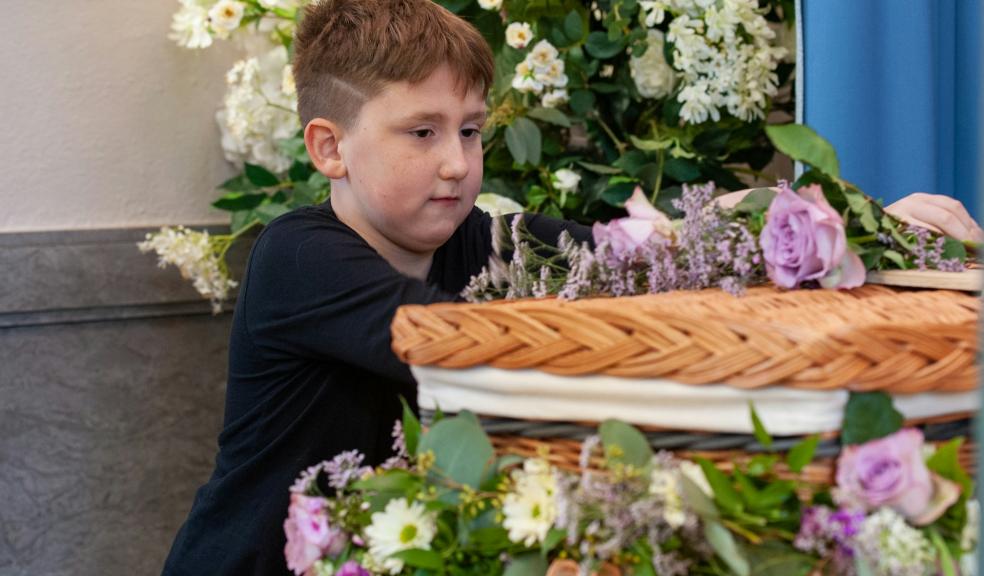
Answering Tough Questions - What to Say When Children Ask About Dying
The innocent curiosity of a child can often lead to profound and challenging questions, especially when the topic evokes discomfort and uncertainty, like death. Imagine when a child looks up with wide eyes and asks, "What happens when you die?" or "Will you die too?". Such seemingly simple inquiries can catch even the most prepared parent off guard, triggering a frantic search for the "right" answer.
While we would naturally want to shield children from the harsh realities of mortality, avoiding the topic of death altogether or providing misleading information can ultimately be more detrimental in the long run. It can breed confusion, anxiety, and a feeling that the topic is too scary or forbidden to discuss openly. It is best to approach such questions with honesty, sensitivity, and in a manner that is appropriate for their age and understanding.
This article will guide you on how to best navigate these delicate conversations and provide age-specific advice for tough questions about death, even in situations where a loved one might be receiving palliative care at home.
Understanding Children’s Perspectives on Death
A child's comprehension of death is not a static concept but rather evolves significantly as they grow and develop cognitively. Understanding these age-related perspectives is fundamental to tailoring your responses in a way that is both truthful and comprehensible.
Preschoolers (Ages 3-5)
For preschoolers, permanence is a relatively abstract idea. They might struggle to understand that death is irreversible and not like sleep from which one simply wakes up. They might feel a loved one’s absence because that person is no longer present to play or provide care. When speaking with this age group, use simple and concrete language, focus on their feelings of sadness or missing someone, and reassure them that they will continue to be loved and cared for by the remaining adults in their lives.
Early Elementary (Ages 6-8)
As children enter early elementary, their understanding of death begins to mature. They realise that death is not temporary but may still struggle with its universality, maybe believing it only happens to very old or sick people. They may also exhibit a growing curiosity about the physical aspects of death, asking questions about what happens to the body. When talking to children in this age range, be honest about death’s permanence, use simple biological explanations like "the body stops working”, address any fears or misconceptions they might have, and gently correct any magical thinking.
Late Elementary/Early Middle School (Ages 9-12)
This age group typically possesses a more mature understanding of death, that all living things eventually die. They may think more deeply about the afterlife, explore religious or spiritual beliefs surrounding what happens after death, and have a more intense awareness of grief and loss. When talking to this age group, create an open space for their questions, share your own beliefs if you feel comfortable, validate their feelings of grief and loss, and allow them to express their sadness openly.
Teenagers (Aged 13+)
Teenagers generally have an adult-like understanding of death and may grapple with more profound philosophical questions about the meaning of life and death, their own mortality, and the impact of loss. For this age group, honest and direct communication is key. Provide a safe space for them to express their emotions without judgment. Connect them with support systems, such as grief counseling or peer groups, if needed.
General Principles for Answering Tough Questions About Dying
When faced with a child's difficult questions about dying, adhering to certain general principles can provide a framework for a supportive and helpful response.
Be Honest and Direct
While the topic is sensitive, using vague language like "gone to sleep" or "lost" can confuse children about the finality of death. Use the words "died" or "dying" to help them grasp the reality of the situation. Avoid indirect language so there’s no misinterpretation and they can process the truth.
Keep it Simple and Age-Appropriate
Your explanation should be tailored to the child's developmental level. Younger children need concrete and straightforward answers, while older children and teenagers can handle more detailed and nuanced explanations. Use language they are familiar with and break down information into smaller, digestible pieces.
Validate Their Feelings
Children may react to the concept of death with a wide range of emotions, including sadness, anger, confusion, fear, or even seeming indifference. Acknowledge and accept whatever they are feeling without judgment. You can say, "It's okay to feel sad," or "It's understandable to be angry that this happened". Never dismiss their feelings or tell them how they should be reacting.
Answer Only What They Ask
Overwhelming them with too much detail at once can be confusing and anxiety-provoking. Let their questions guide the conversation.
Be Prepared for Follow-Up Questions
Children often process information about death gradually. They may ask something hours, days, or even weeks later as they continue to think about what they've learned. Be open and willing to revisit the topic with the same honesty and patience.
Offer Reassurance and Security
Children, especially younger ones, may worry about who will take care of them or if others they love will also die. Reassure them that they are loved and will continue to be cared for.
It's Okay to Say “I Don’t Know”
When faced with questions about the afterlife or other uncertain aspects of death, honesty is still the best policy. Say something like, "That's a really good question, and it's something that many people wonder about. I don't know for sure what happens, but some people believe..." You can then briefly share your own beliefs or acknowledge different perspectives without presenting them as definitive answers. You can even suggest exploring the question together through books or discussions.
Use Concrete Examples When Possible
You could talk about a dead pet, a dead leaf falling from a tree, or the natural life cycle of plants and animals. These tangible examples can help them grasp the idea of something living ceasing to live.
Be Patient
Talking about death is difficult for everyone, both adults and children. Allow ample time for these conversations and be prepared to revisit the topic multiple times. Even in situations where palliative care at home is being provided, patience is key in explaining the changes happening to a loved one in a way the child can understand and process.
Addressing Specific Common Questions
When children ask specific questions about dying, providing clear and age-appropriate answers, accompanied by simple examples, can be incredibly helpful in addressing their concerns.
What happens when someone dies?
For younger children, a straightforward answer like, "When someone dies, their body stops working. They can't breathe anymore, they don't feel anything, and their heart stops beating, just like when a toy breaks and can't work anymore," would be best.
For older children: Offer slightly more detail. It's also an opportunity, if you feel it's appropriate and aligns with your family's values, to briefly mention personal beliefs about what might happen after death, such as "Some people believe they go to a special peaceful place," or "In our religion, we believe..."
Where do dead people go?
Acknowledge that there are many different beliefs about this. Regardless of your personal beliefs, it's often comforting to focus on the enduring aspects of the relationship, such as "Even though we can't see them anymore, we will always remember them and the love we shared with them."
Will I die? Will you die?
While complete reassurance of immortality is not possible, you can offer honest yet reassuring answers about the typical human lifespan. Then, gently shift the focus to the present, emphasising the importance of living and enjoying the time they have now.
Is it scary to die?
Acknowledge that the idea of dying can seem scary. Then, offer comfort and reassurance. You can say, "Sometimes, when people are very sick or very old, their bodies are tired, and dying can be like finally resting and being free from pain."
When a Loved One is Dying or Has Died
If a loved one is terminally ill, try to be as honest as possible. For younger children, simply explain that the person is very sick and their body is weakening. As they get older, provide more information about the illness in a way they can understand, without overwhelming them with medical jargon. Prepare them for what to expect - that the person might be sleeping more, might not be able to do the things they used to, or might look different.
If appropriate and if the dying loved one is willing, involving children in saying goodbye can be a meaningful experience. This could be through visits, drawing pictures, writing letters, or simply spending quiet time together.
When explaining death after a loss, be clear and direct. Allow children to grieve in their own way. Funerals and memorial services, even if they seem sombre, can provide a sense of closure and allow children to witness the support of the community.
Conclusion
Creating a safe and trusting environment where children feel comfortable asking difficult questions about death, without fear of judgment or dismissal, is paramount. By being willing to engage in these conversations, even when they are uncomfortable, we provide children with the tools they need to cope with the realities of life and loss.
Remember that these conversations are not one-time events. Children may revisit their questions and feelings about death as they grow and experience new things. Maintain an open and supportive stance, and let them know that you are always there to listen and talk.














